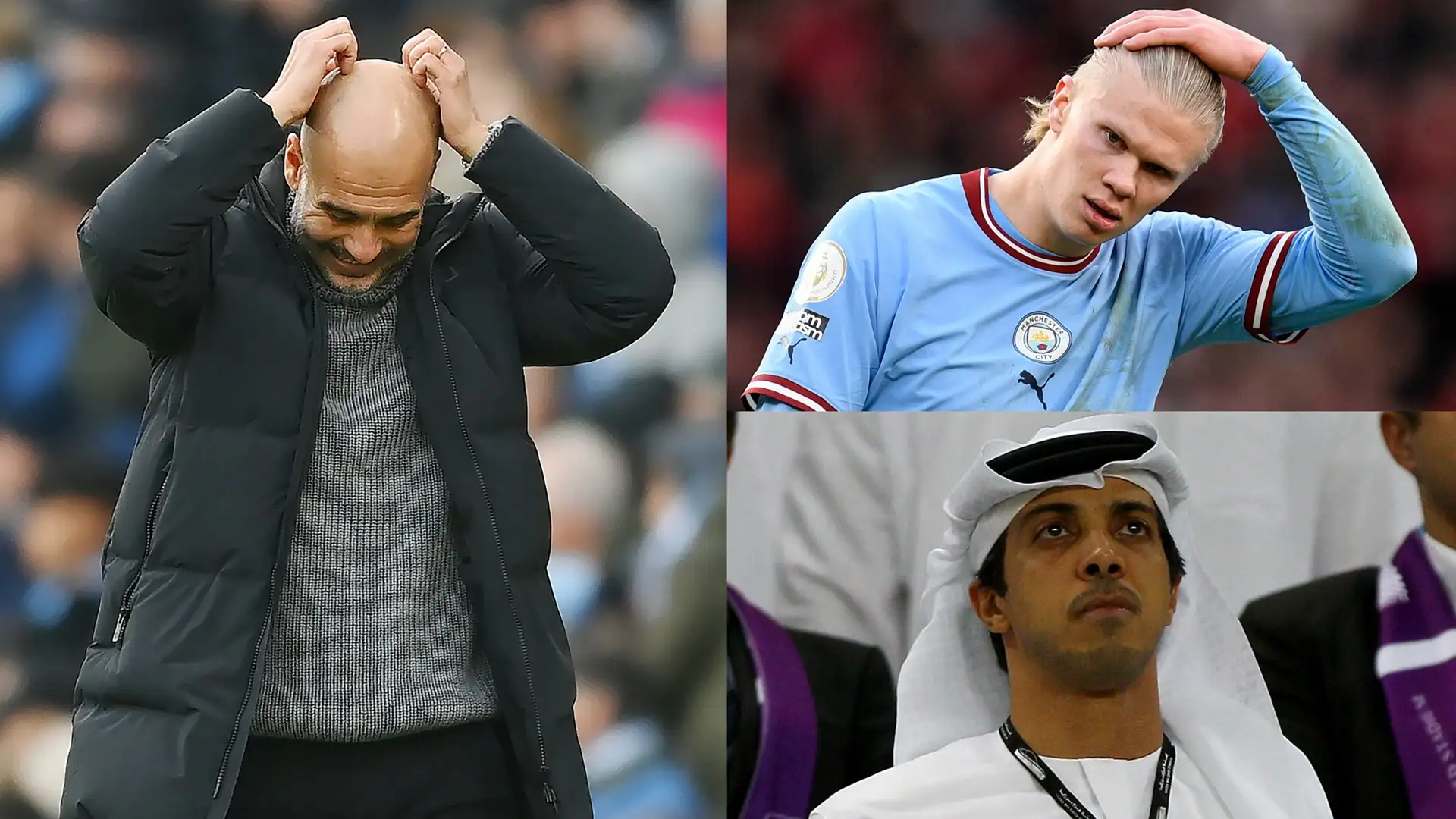Manchester City fans are ‘buzzing’ after seeing Premier League announcement

The summer of 2025 represents a pivotal moment in Manchester City’s recent history. After enduring what many consider their most challenging campaign in years during the 2024/25 season, the Premier League giants are orchestrating a comprehensive rebuild that promises to reshape both their playing squad and coaching structure. At the heart of this transformation lies a significant appointment that has been years in the making – the arrival of Pepijn Lijnders as assistant manager, finally filling the void left by the legendary Brian Kidd in 2021.
The End of an Era: Understanding City’s Challenging 2024/25 Campaign
Manchester City’s 2024/25 season will be remembered as a stark departure from the trophy-laden campaigns that have defined Pep Guardiola’s tenure at the Etihad Stadium. For the first time in years, the Manchester club concluded a campaign without silverware, a reality that sent shockwaves through the organization and its global fanbase. This barren run represented more than just a temporary setback; it served as a wake-up call that even the most successful football operations require constant evolution and renewal.
The challenges faced throughout the season were multifaceted. An aging midfield struggled to maintain the intensity and creativity that had become synonymous with City’s style of play. Key players showed signs of fatigue after years of competing at the highest level across multiple competitions. The tactical approaches that had previously overwhelmed opponents were beginning to be decoded and countered with increasing effectiveness by rival teams.
Guardiola, never one to shy away from self-reflection and adaptation, recognized that significant changes were necessary. The Catalan manager’s commitment to continuous improvement meant that the disappointment of a trophyless season would serve as fuel for a comprehensive summer overhaul. This mindset has always been central to Guardiola’s philosophy – the understanding that success in modern football requires constant reinvention and the courage to make difficult decisions.
The Lijnders Appointment: A Masterclass in Strategic Recruitment
The appointment of Pepijn Lijnders as assistant manager represents perhaps the most significant coaching addition to Manchester City’s backroom staff since Guardiola’s own arrival in 2016. The 42-year-old Dutchman brings with him an impressive pedigree, having spent nine-and-a-half years working alongside Jurgen Klopp at Liverpool across two separate spells. This experience positions him uniquely to understand the demands of Premier League football at the highest level.
Lijnders’ journey to Manchester City is particularly fascinating given his previous declarations about his coaching future. Following Klopp’s departure from Liverpool, the Dutch coach had publicly stated his intention never to work as an assistant manager again, vowing that his next role would be as a head coach. He told Liverpool’s official website: “I always said I will finish with Jürgen; the moment I will not assist anyone else, that’s the moment I will go and I will manage. That was always the case.”
However, the opportunity to work under Guardiola – widely regarded as one of the greatest tactical minds in football history – proved too compelling to resist. This decision speaks volumes about both Lijnders’ ambition to continue learning and the magnetic pull of Guardiola’s coaching philosophy. The prospect of studying under a manager who has revolutionized football at Barcelona, Bayern Munich, and Manchester City represents an educational opportunity that few coaches would decline.
The strategic value of this appointment cannot be overstated. Lijnders brings intimate knowledge of Liverpool’s tactical approaches, having been instrumental in developing the high-intensity, gegenpressing style that brought such success to Anfield. His understanding of how to counteract City’s traditional strengths, gained from years of preparing Liverpool to face Guardiola’s teams, now becomes an invaluable asset for the Manchester club.
The Brian Kidd Legacy: Understanding What Made Him Special
To fully appreciate the significance of Lijnders’ appointment, it’s essential to understand the remarkable contribution made by Brian Kidd during his twelve-year tenure at Manchester City. Arriving in 2009 as a Technical Development Manager, Kidd quickly established himself as an indispensable figure within the club’s coaching structure, working under three different managers and playing a crucial role in the club’s transformation from Premier League contenders to global powerhouses.
Kidd’s influence extended far beyond tactical preparation and match-day coaching. His reputation in English football, built through successful spells at Manchester United under Sir Alex Ferguson and various other clubs, commanded immediate respect from players and staff alike. This respect was crucial in helping to establish the winning mentality that became central to City’s success under Roberto Mancini, Manuel Pellegrini, and ultimately Pep Guardiola.
When Guardiola arrived at the Etihad Stadium in 2016, Kidd’s role became even more significant. The Englishman served as a bridge between the Spanish coach’s revolutionary ideas and the practical realities of Premier League football. His understanding of English football culture, combined with his tactical acumen, helped Guardiola adapt his methods to achieve unprecedented success in English football.
Guardiola’s tribute to Kidd upon his departure in 2021 highlighted the profound impact the Englishman had made: “Brian Kidd is a legend in this country. Not only for what he has done here at Manchester City, but at other clubs throughout his incredible career. He has been so important to me during my time at the club, and I am sure to Roberto and Manuel also. He has so much respect in our dressing room, from myself, my coaches and most importantly the players.”
The Four-Year Search: Why Finding Kidd’s Replacement Proved So Difficult
The departure of Brian Kidd in 2021 left Manchester City with a significant void that proved remarkably difficult to fill. For four years, the club searched for an assistant manager who could match Kidd’s unique combination of tactical knowledge, leadership qualities, and cultural understanding. This extended search period speaks to the exacting standards Guardiola and the club’s hierarchy maintain when making key appointments.
Several factors contributed to the difficulty of this search. First, the role demanded someone with exceptional tactical intelligence capable of contributing meaningfully to Guardiola’s sophisticated coaching methods. Second, the position required an individual with the personality and communication skills to command respect from world-class players. Third, and perhaps most importantly, the ideal candidate needed to complement Guardiola’s intense, perfectionist approach while bringing their own unique perspectives and insights.
The intervening years saw various interim solutions and temporary arrangements, but none provided the long-term stability and expertise that Kidd had offered. This situation highlighted the importance of having the right personnel in key positions and demonstrated Guardiola’s patience in waiting for the ideal candidate rather than settling for a compromise appointment.
Midfield Revolution: The Heart of City’s Summer Rebuild
While the coaching appointments have garnered significant attention, Manchester City’s summer rebuild extends far beyond the touchline. A comprehensive overhaul of the midfield has been identified as crucial to returning the club to its trophy-winning ways. The 2024/25 season exposed the limitations of an aging midfield that, while still capable of moments of brilliance, lacked the consistency and dynamism required for sustained success at the highest level.
The pursuit of Tijjani Reijnders from AC Milan represents a key component of this midfield revolution. The Dutch international has emerged as one of Europe’s most promising central midfielders, combining technical excellence with the physical attributes necessary to thrive in the Premier League. Fabrizio Romano’s reports suggest that negotiations are progressing rapidly, with City confident of securing the player’s signature.
Reijnders’ profile fits perfectly with Guardiola’s requirements. At 26 years old, he offers the ideal combination of experience and potential for further development. His ability to operate in multiple midfield positions provides the tactical flexibility that Guardiola values highly. Most importantly, his performances for both club and country have demonstrated the mental fortitude required to succeed at Manchester City’s demanding standards.
The club’s interest in Rayan Cherki adds another dimension to their midfield reinforcements. The young French talent represents the creative spark that City sometimes lacked during their difficult campaign. His ability to unlock tight defenses through individual brilliance could prove crucial in the big matches that often determine championship races.
January Acquisitions: Early Signs of the Rebuild
Manchester City’s commitment to renewal was already evident during the January transfer window, when the club moved decisively to address some of their squad’s deficiencies. The arrivals of Omar Marmoush, Nico Gonzalez, Abdukodir Khusanov, and Vitor Reis represented a significant investment in both immediate improvement and long-term planning.
Omar Marmoush’s impact has been particularly noteworthy, with the Egyptian forward quickly establishing himself as a fan favorite through his dynamic performances and spectacular goals. His recent recognition as the Premier League’s Goal of the Season winner for his strike against Bournemouth serves as vindication of City’s recruitment strategy. The goal itself – a thunderous effort that drew comparisons to Kevin De Bruyne’s trademark strikes – demonstrated the quality and character that Marmoush brings to the squad.
The significance of Marmoush’s early success extends beyond individual recognition. His adaptation to English football and immediate impact on City’s attacking play provide a template for how the club’s summer signings might integrate into Guardiola’s system. His ability to contribute both goals and assists while fitting seamlessly into City’s tactical framework suggests that the recruitment team’s identification processes are functioning effectively.
High-Profile Departures: Reshaping the Squad
While much attention focuses on incoming transfers, Manchester City’s summer rebuild also involves some significant departures. The reported agreement for Kevin De Bruyne to join Napoli represents perhaps the most shocking development of the transfer window. The Belgian midfielder’s decade-long association with the club has seen him establish himself as one of the greatest players in City’s history, making his potential departure all the more significant.
De Bruyne’s exit, if confirmed, would represent the end of an era at the Etihad Stadium. His creative genius and leadership qualities have been central to City’s success under Guardiola, with the Belgian often serving as the bridge between the manager’s tactical concepts and their practical execution on the pitch. However, his age and recent injury concerns may have influenced the club’s decision to cash in while his market value remains substantial.
The potential departure of such a totemic figure demonstrates the ruthless approach that has characterized City’s success under their current ownership. The willingness to make difficult decisions about beloved players, when deemed necessary for the long-term health of the squad, has been a consistent theme throughout the club’s transformation into a global powerhouse.
Backroom Changes: A Complete Structural Overhaul
The changes at Manchester City extend far beyond the playing squad, with significant alterations to Guardiola’s backroom staff reflecting the comprehensive nature of the club’s summer rebuild. The departures of assistant coaches Juanma Lillo and Inigo Dominguez represent the end of important relationships that had contributed to the club’s recent success.
Lillo’s departure is particularly significant given his long-standing relationship with Guardiola and his influence on the manager’s tactical evolution. The Chilean coach’s expertise in positional play and his ability to translate complex tactical concepts into practical training exercises had made him an invaluable member of the coaching staff. His exit creates an opportunity for fresh perspectives and new ideas to influence City’s tactical approach.
The appointment of Lijnders as the senior assistant manager provides clarity about the new hierarchy within the coaching structure. His experience working with Klopp’s intensive training methods and his understanding of modern football’s physical and tactical demands position him perfectly to lead the implementation of any necessary changes to City’s preparation methods.
Fan Reaction: Embracing Change and Optimism
The response from Manchester City supporters to these developments has been overwhelmingly positive, reflecting the fanbase’s understanding that significant changes were necessary after the disappointments of the previous season. The celebration of Marmoush’s Goal of the Season award demonstrates the eagerness among supporters to embrace new heroes and fresh narratives.
Social media reactions to the various announcements have showcased the excitement building among City fans ahead of the new season. Comments such as “Well deserved for sure. I am buzzing for him honestly!” and “This is just the beginning for him” reflect the optimism that surrounds the club’s new signings and their potential impact.
The fanbase’s acceptance of major changes, including potentially bidding farewell to legends like De Bruyne, demonstrates the sophisticated understanding of modern football that City supporters have developed. The recognition that continued success requires constant evolution and renewal shows a mature approach to supporting the club through transitional periods.
Tactical Evolution: How Lijnders Might Influence City’s Play
The arrival of Pepijn Lijnders brings the intriguing possibility of tactical evolution within Guardiola’s system. While the fundamental principles of possession-based football and positional play are unlikely to change, Lijnders’ experience with Liverpool’s more direct, high-intensity approach could introduce new elements to City’s tactical repertoire.
Liverpool’s success under Klopp and Lijnders was built on rapid transitions, aggressive pressing, and direct attacking play that often caught opponents off-guard. These elements, when combined with City’s technical superiority and possession-based foundation, could create an even more dynamic and unpredictable style of play.
The integration of these different tactical philosophies represents one of the most fascinating aspects of the upcoming season. Guardiola’s willingness to learn and adapt, combined with Lijnders’ fresh perspectives gained from years of competing against City, could result in tactical innovations that surprise both opponents and observers.
Looking Ahead: Expectations for the 2025/26 Season
As Manchester City prepares for the 2025/26 campaign, expectations are building for a dramatic return to form. The combination of strategic signings, coaching reinforcements, and renewed motivation following the previous season’s disappointments creates the foundation for what could be a spectacular comeback.
The pressure to deliver immediate results will be intense, particularly given the significant investments made in both playing and coaching personnel. However, the club’s track record of successful transitions and Guardiola’s proven ability to rebuild and re-energize his squads suggests that City are well-positioned to meet these expectations.
The upcoming season will serve as the ultimate test of whether Manchester City’s summer revolution has successfully addressed the issues that led to their recent struggles. Success will be measured not just in trophies won, but in the demonstration that the club remains capable of evolving and adapting to maintain its position at the pinnacle of world football.
The appointment of Pepijn Lijnders as the replacement for Brian Kidd represents more than just a coaching change – it symbolizes Manchester City’s commitment to continuous improvement and their refusal to accept mediocrity. As the new season approaches, all eyes will be on whether this bold summer rebuild can restore the club to its trophy-winning ways and establish the foundation for sustained future success.















